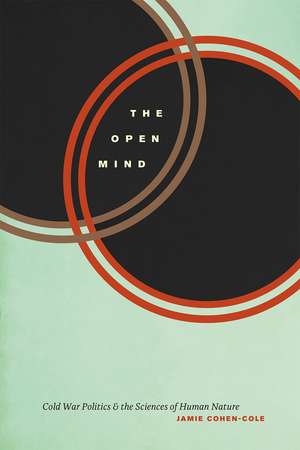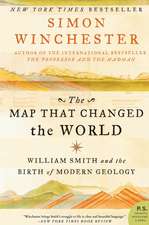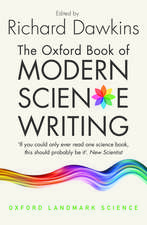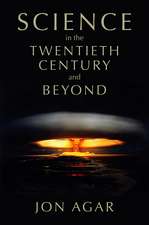The Open Mind: Cold War Politics and the Sciences of Human Nature
Autor Jamie Cohen-Coleen Limba Engleză Paperback – 21 mar 2016
The Open Mind chronicles the development and promulgation of a scientific vision of the rational, creative, and autonomous self, demonstrating how this self became a defining feature of Cold War culture. Jamie Cohen-Cole illustrates how from 1945 to 1965 policy makers and social critics used the idea of an open-minded human nature to advance centrist politics. They reshaped intellectual culture and instigated nationwide educational reform that promoted more open, and indeed more human, minds. The new field of cognitive science was central to this project, as it used popular support for open-mindedness to overthrow the then-dominant behaviorist view that the mind either could not be studied scientifically or did not exist. Cognitive science also underwrote the political implications of the open mind by treating it as the essential feature of human nature.
While the open mind unified America in the first two decades after World War II, between 1965 and 1975 battles over the open mind fractured American culture as the ties between political centrism and the scientific account of human nature began to unravel. During the late 1960s, feminists and the New Left repurposed Cold War era psychological tools to redefine open-mindedness as a characteristic of left-wing politics. As a result, once-liberal intellectuals became neoconservative, and in the early 1970s, struggles against open-mindedness gave energy and purpose to the right wing.
Preț: 226.20 lei
Nou
Puncte Express: 339
Preț estimativ în valută:
43.29€ • 44.94$ • 36.10£
43.29€ • 44.94$ • 36.10£
Carte tipărită la comandă
Livrare economică 25 martie-08 aprilie
Preluare comenzi: 021 569.72.76
Specificații
ISBN-13: 9780226361901
ISBN-10: 022636190X
Pagini: 405
Ilustrații: 10 halftones, 3 line drawings
Dimensiuni: 152 x 229 x 25 mm
Greutate: 0.54 kg
Editura: University of Chicago Press
Colecția University of Chicago Press
ISBN-10: 022636190X
Pagini: 405
Ilustrații: 10 halftones, 3 line drawings
Dimensiuni: 152 x 229 x 25 mm
Greutate: 0.54 kg
Editura: University of Chicago Press
Colecția University of Chicago Press
Notă biografică
Jamie Cohen-Cole is assistant professor in the Department of American Studies at George Washington University. He lives in Arlington, Virginia.
Cuprins
Introduction
The American Mind
Chapter 1. Democratic Minds for a Complex Society
Chapter 2. The Creative American
The Academic Mind
Chapter 3. Interdisciplinarity as a Virtue
Chapter 4. The Academy as Model of America
The Human Mind
Chapter 5. Scientists as the Model of Human Nature
Chapter 6. Instituting Cognitive Science
Chapter 7. Cognitive Theory and the Making of Liberal Americans
Chapter 7. Cognitive Theory and the Making of Liberal Americans
The Divided Mind
Chapter 8. A Fractured Politics of Human Nature
Conclusion. The History of the Open Mind
Acknowledgments
Notes
References
Index
Index
Recenzii
“Cohen-Cole’s fascinating new book The Open Mind tells the story of liberal tolerance since World War II, examining how an ideal of open-mindedness was deliberately cultivated in psychology, pedagogy, and social science. Exposing all the contradictions of liberalism, Cohen-Cole has written a highly illuminating prehistory of the muddles and riddles of contemporary political rhetoric.”
“Cohen-Cole’s book not only offers a fascinating glimpse into the development of mid-century psychology and cognitive science but also shows the deep connections among what was happening in what might otherwise be considered separate social and political spaces that include laboratories, classrooms, cocktail parties, conferences, academic departments, and various physical and textual loci of political and social engagement. It is exceptionally clear in its narrative structure, prose style, and argument, and it offers a fresh perspective on how we understand the co-creation of science and society in Cold War America.”
"As intellectual history, Cohen-Cole's broadly researched, closely argued study does not provide easy reading. But the attention it demands is worthwhile for its important, fresh outlook on significant developments during the Cold War era. Highly recommended."
“The Open Mind is an elegant and important book that makes a major contribution to rethinking the Cold War and its many legacies. Jamie Cohen-Cole has written a prismatic history, one that reflects the academic disciplines, the institutions of higher education and their funders, and the social and intellectual networks of its principle figures as they shaped Cold War politics and education policy. And it even has a chapter on ‘Man: A Course of Study’ (MACOS), a subject I have puzzled over since the fifth grade. Meticulously researched and argued, the narrative is compelling, surprising, and refreshingly free of conventional wisdom about the period. As we come to question the self-evident value of open-mindedness in the process of seeing it historicized, Cohen-Cole allows us to see our own values and habits of thought in a new way.”
“In this fascinating book, Jamie Cohen-Cole illustrates the surprisingly strong relations among conceptions of the human mind, models of the academy, and images of the ideal American citizen, as well as the ultimate fragility of these relations in the face of disruptive political forces.”
“Charting the political and psychological resonance of ‘the open mind’ in the postwar United States, Jamie Cohen-Cole himself opens up wholly new ways of conceiving the relationship of the human sciences to public culture. His compelling account of the ways intellectuals brought the democratic citizen, the scholarly self, and the normative human into alignment in this era fundamentally alters what we know about the ‘liberal consensus’: both how it was knit together and how it unraveled. Deeply original and provocative, The Open Mind reveals how thinking about thinking changed, and why it mattered—for the academy, for science, and for American political culture.”
“Who could be against an open mind? In this lucid and humane book, Jamie Cohen-Cole shows how psychologists tried to model Americans on themselves—as autonomous, creative, experimental scientists. Ultimately, however, their subjects kicked back. A salutary reminder of the limits to the authority of science in postwar America.”
“Anyone who wants to know about American democracy in the postwar era, and the special place of psychology within it, will profit enormously from reading Cohen-Cole’s excellent study.”
"...left a long-lasting impression on me...an important contribution to the history of the social sciences during the Cold War."
"Against the background of the debates between behaviorists and cognitive psychologists, Cohen-Cole offers a lively analysis of the way whereby the latter made the virtues encountered in salons and other venues for conversation—open-mindedness, flexibility, realisticness, interdisciplinarity, and creativity—the characteristics of normal human nature."












